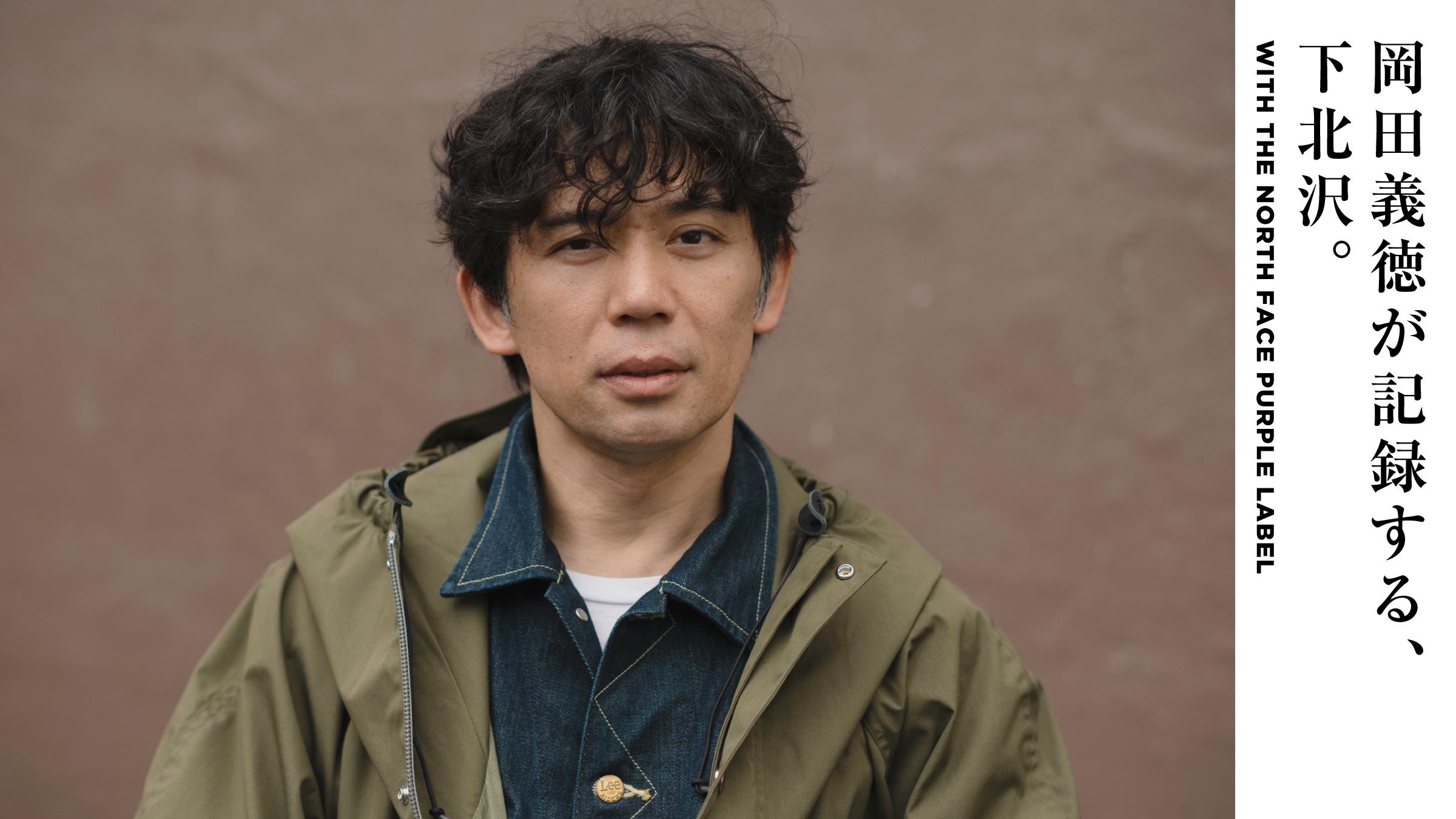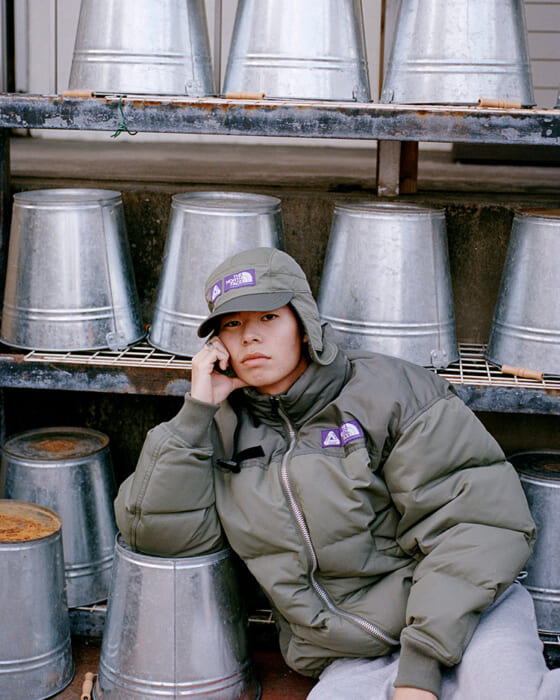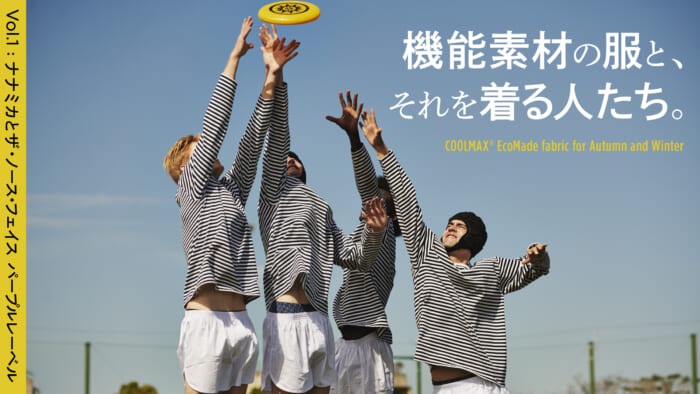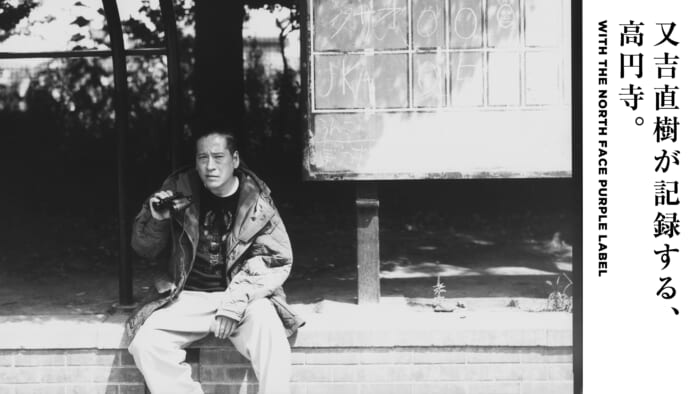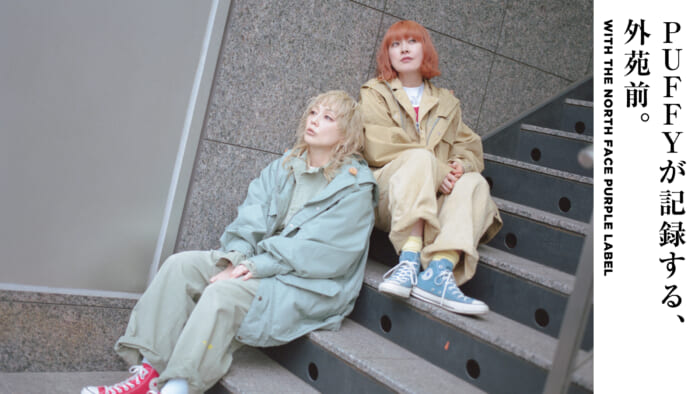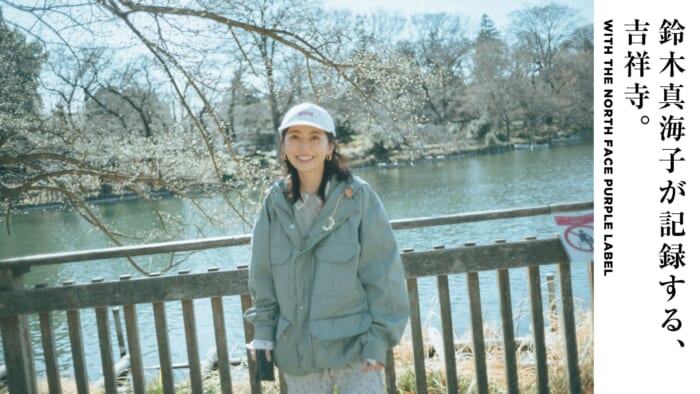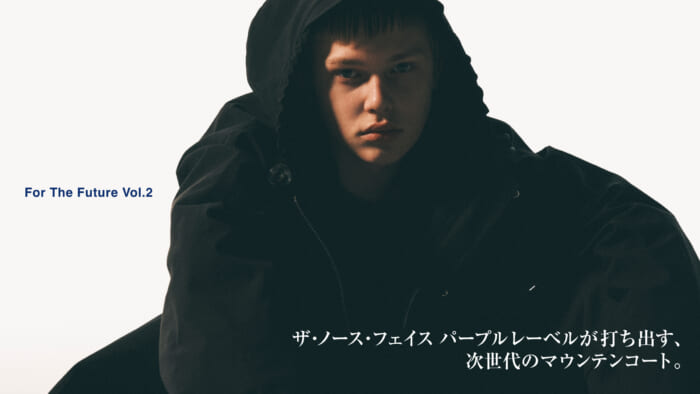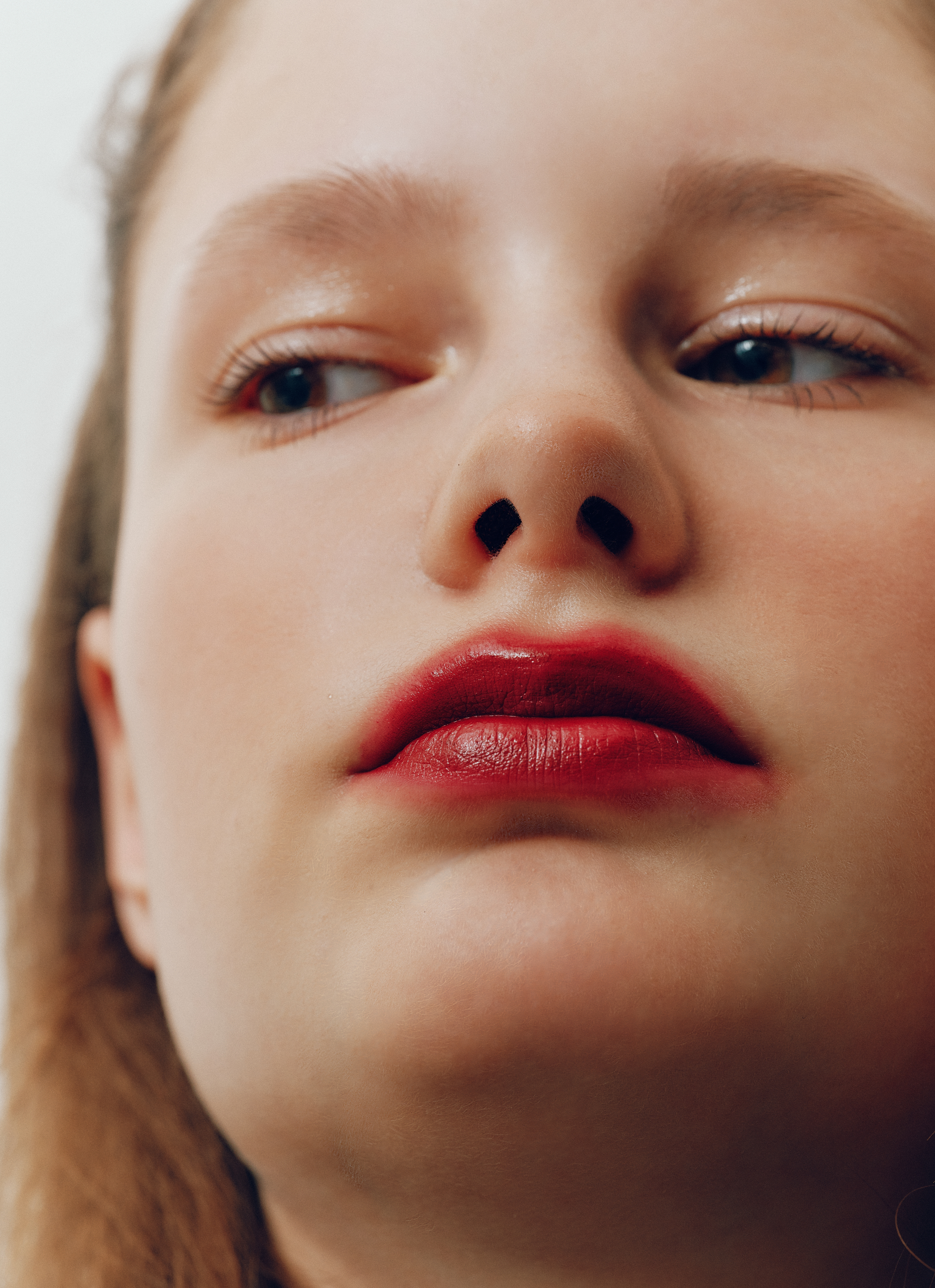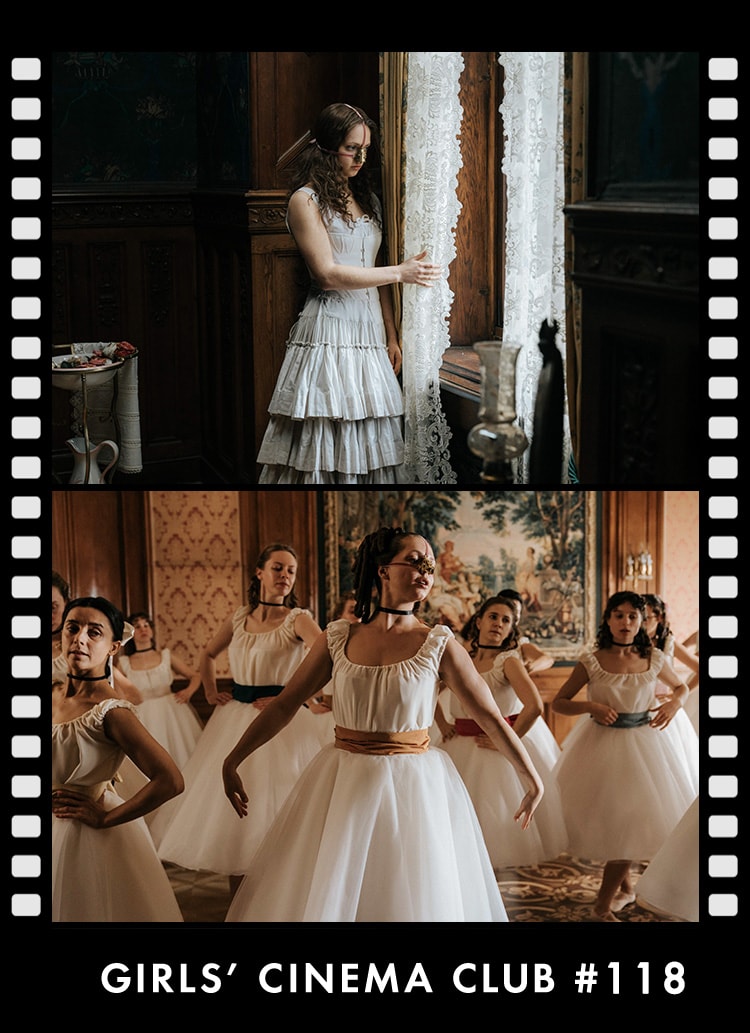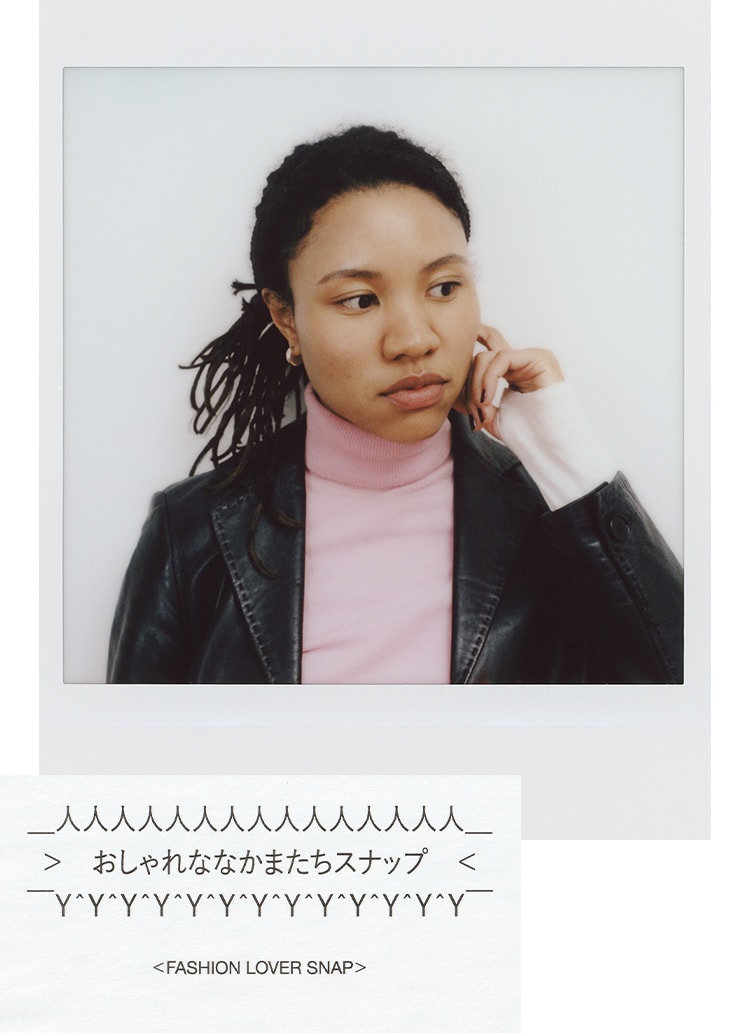Shimokitazawa is where I learned about the underground.
The city has the impression of buildings and concrete, but if you look carefully, you will notice that nature is actually everywhere, such as flowers and trees blooming on roadsides, parks, and the wind blowing off buildings. Such "nature in the city" is the essence of "The North Face Purple Label's outdoor wear that blends in with the city.
Among these, the mountain parka is known as a standard item that has been a staple since the brand's birth. The fabric is made of "65/35 Bay Head Cloth," a high-density blend of recycled polyester and organic cotton spun at a ratio of 65:35. The fabric is durable and functional, yet feels like cotton to the touch. It has four pockets that can easily fit a paperback book, so you don't need a bag when you go for a walk.
Yoshinori Okada, clad in the brand's signature clothing, heads to Shimokitazawa, a place he says he has frequented in the past and still frequents today. The North Face Purple Label's key phrase is "documenting nature in the city," and we asked Mr. Okada to record the scenery of Shimokitazawa in his photographs.
Today's shooting took place in Shimokitazawa, a place you have been familiar with for a long time.
Okada: I used to hang out in Shimokitazawa from my late teens to my early twenties. I would come here to listen to music and hang out with my music friends. There was a strong connection between playing and music. Nowadays, there are fewer live music clubs, and I feel like I don't feel the music anymore...
Did you start playing in Shimokitazawa right after you came to Tokyo from your hometown in Gifu Prefecture?
Okada: At first, it was different. I was working late at night at a convenience store, and I was at the cash register with red hair and dressed as punks. I sat there the whole time, reading the magazine. Then, the manager of "Basement Bar" in Shimokitazawa, where I often came to the store, said to me, "You're funny. BASEMENT BAR" in Shimokitazawa, where I often came to the store, said to me, "You're interesting. Won't you work for us? I ended up working at Basement.
Scouting at a convenience store...that's an amazing story (laughs). You also filmed at the BASEMENT BAR. What was it like for you there?
Okada: I think this is where I learned about the underground. I learned that an old guy who wandered into a small store like this could play the guitar really well, or that a DJ playing music was really cool. It was a place that showed me the world of the underground. It was a place where I learned how cool it was. There were a lot of people with great taste, and I was inspired by the fashion of people I thought were cool.
As a typical example, you mentioned Jun Murakami's name earlier during the filming at the "BASEMENT BAR".
Okada: Murajun was a different story. I was in the countryside, so I didn't know him from fashion magazines, but rather from a TV drama I did when I first came to Tokyo. I talked to Murajun there and found out that he was in a magazine, and when I saw him in person, he was in it a lot (laughs). (Laughs) He was always very stylish, and I think I learned a lot from watching him.
So, did the people you met at the "BASEMENT BAR," including Jun Murakami, influence you to change your fashion?
Okada: No, I learned that there were cool people like that, but I did not change my own fashion. I always like to wear vintage pants with a studded jacket, and my style is based on punks. So even when I dressed up in backwoods style, I would wear "Martens" and "Hectic" or "Good Enough," incorporating something of the punks' style. It was a time of mixology, so it was interesting to see punk, skate, hip-hop, and other styles all mixed together. There were so many choices.
I'm going to change the subject a bit, but was Uchi's mohawk in "Kisarazu Cat's Eye" a manifestation of the punk side of Okada-san?
Okada: I had a mohawk in private just before we started shooting. I had a mohawk for the reading, but when I read the script, it said I had a mohawk (laughs). I was like, "What am I going to do? But Kudo-kan said he wanted to make it a Mohawk because he thought it would be funny, and that's how it came to be that he cuts my hair in the film. So, the hair was a continuation of the original Mohawk.
I didn't know there was such a backstory (laughs). (Laughs.) With his mohawk, he has become an iconic character that has not faded away.
Okada: That's right. Uchi's character is a punk with a physical disability, which is a theme in my mind. This is a bit off topic, but I have a foreign friend who has atopic dermatitis all over his body. I think that's a very good thing. So I thought it would be good to have Uchi, who has a stammer, come out and have fun, even though it is not a black comedy. There is a deep theme to that role.
When I looked at your Instagram, I saw that you were wearing self-made clothes, and I could sense the punks' mentality in your current attire.
Okada: There is a part of me that thinks, "I should do it myself. It takes a lot of work to take clothes apart, to re-dye shoes, and so on, but that's what makes me feel attached to them. I think people take good care of things they made themselves. Children also cherish things they made themselves. They get bored with toys they bought with money, but they cherish a car they made with cardboard. I feel that this is the starting point of taking good care of things, and I have recently been learning this from my children.
This time, we asked you to wear The North Face Purple Label's mountain parka as an accompaniment to your memorable walk in Shimokitazawa. How did you feel when you actually put on the sleeves?
Okada: I have known about NANAMICA for a long time, and Japanese craftsmanship is good. I know the old "The North Face" mountain parka, but I think it was stiffer. This one is soft, lined, and above all, lightweight.
The fabric is called "65/35 Bay Head Cloth," which looks like cotton but is tough and can be washed at home.
Okada: I would like to wear it as much as possible, even if it gets dirty from playing with kids. I don't mind wearing vintage T-shirts, and I usually put them in the dryer. I think clothes are meant to be worn, and if you don't wear them, they will be ruined.
The styling of the denim set-up with a mountain parka worn over it like a mod coat must have been a nostalgic look for Okada-san, don't you think?
Okada: I miss this feeling. By the way, this is just a coincidence, but I bought a denim set-up this year. I suddenly felt like wearing it. At the time, I couldn't decide between one-wash and damaged denim, and in the end I decided to go with damaged. Maybe I've finally reached an age where they look good on me.
You had your personal Polaroid camera "SX70" in the pocket of your mountain parka. You actually took some photos with it. Do you like photography?
Okada: I like it. I used to use this "SX70" and used to take pictures of the sky. I like the sky a lot, and I take pictures of clouds and so on. So I have a lot of photos with a composition of 70% sky and 30% ground. After I ran out of film for the SX70, I started using a digital camera called the GX100. After I had a child, I started taking pictures with my cell phone because I wanted to be fast, but I thought that would be lonely, so these days I try to take pictures with my GR.
So it had been a long time since you had done a Polaroid.
Okada: Well, I'm glad I got it right (laughs). I think it would have been better if it had been sunny, because the SX70 produces very beautiful blue colors.
All of the photos are very beautiful. Some of them are meaningful only because Mr. Okada took them, such as the "BASEMENT BAR" that I mentioned earlier, and the "Honda Theater" where Mr. Okada often appears.
Okada: Personally, I like this one (the photo of the popping out boy). I have a memory of taking the same picture in the same place a long time ago, and I re-took it today.
Do you usually go for walks in the city, as you did this time? The North Face Purple Label" actually has a line called "stroll," and walking is something that the brand is very familiar with.
Okada: I do this with my children, and I often take a walk when I go to a rural area for a stage production these days. I try to see the atmosphere of the city and what kind of things are there while walking around.
Is that part of your job as an actor?
Okada: Rather, I think I like local people. In the past, I used to avoid meeting such people, but now I want to hear many things from the people who live there. I feel that talking to people and learning things from them will make the human part of me grow. An actor's job is to create a human being, and that may ultimately lead to becoming an actor.
What kind of work would you like to do in the future?
Okada: Now you want to do stage work. That is because I want to build up my groundwork by the time I get older. If I can create something solid by the time I am in my fifties, I will not waver even if I get a variety of jobs, such as video work. It is a process of solidifying my foothold. I have a baby face, so I am often seen as being in the middle of my age range, but when I get older, I will be able to broaden my range and have fun. Also, on the subject of fashion, when my children grow up, I want to wear a tack jacket again (laughs).
Town and nature photographed by Yoshinori Okada.
- 1
- 2


